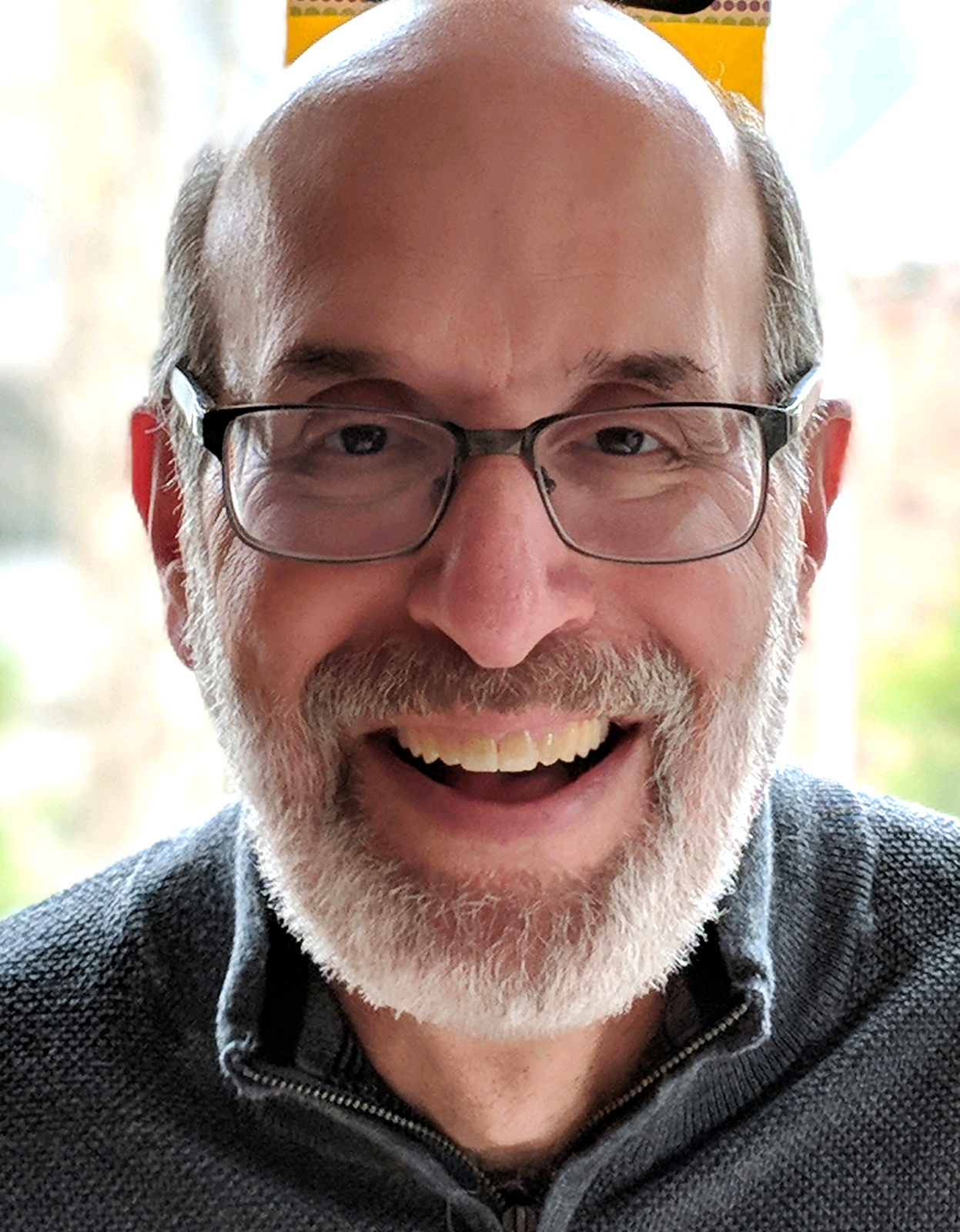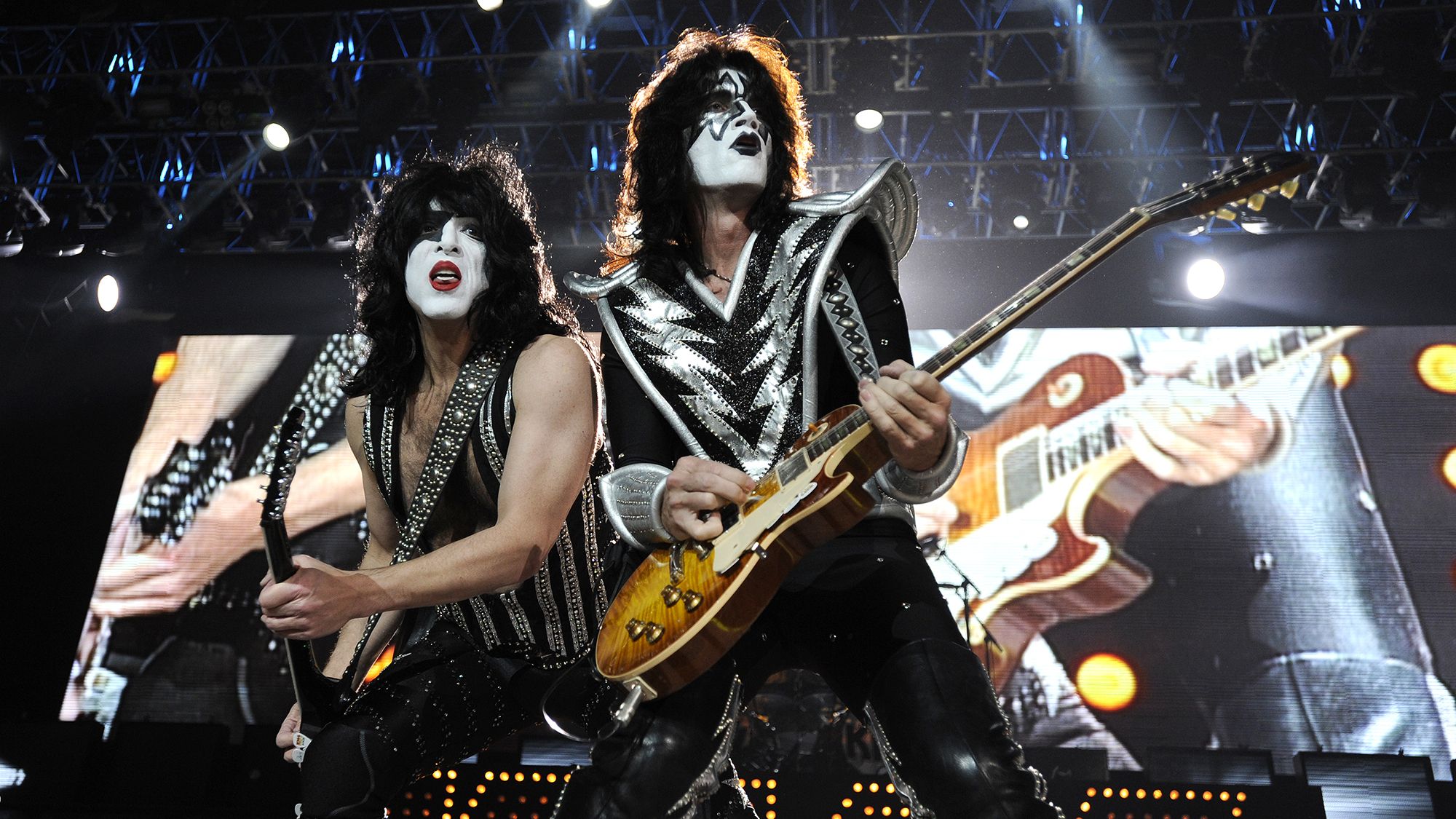"He said, 'You can't play a song on that guitar and leave 'Free Bird' out of it!'" Heard on Lynyrd Skynyrd greatest hits, Gary Rossington's 1961 Gibson SG returns to the stage for the first time in years
The southern rocker's gear, including his amps, will soon be used onstage by "some very big acts"
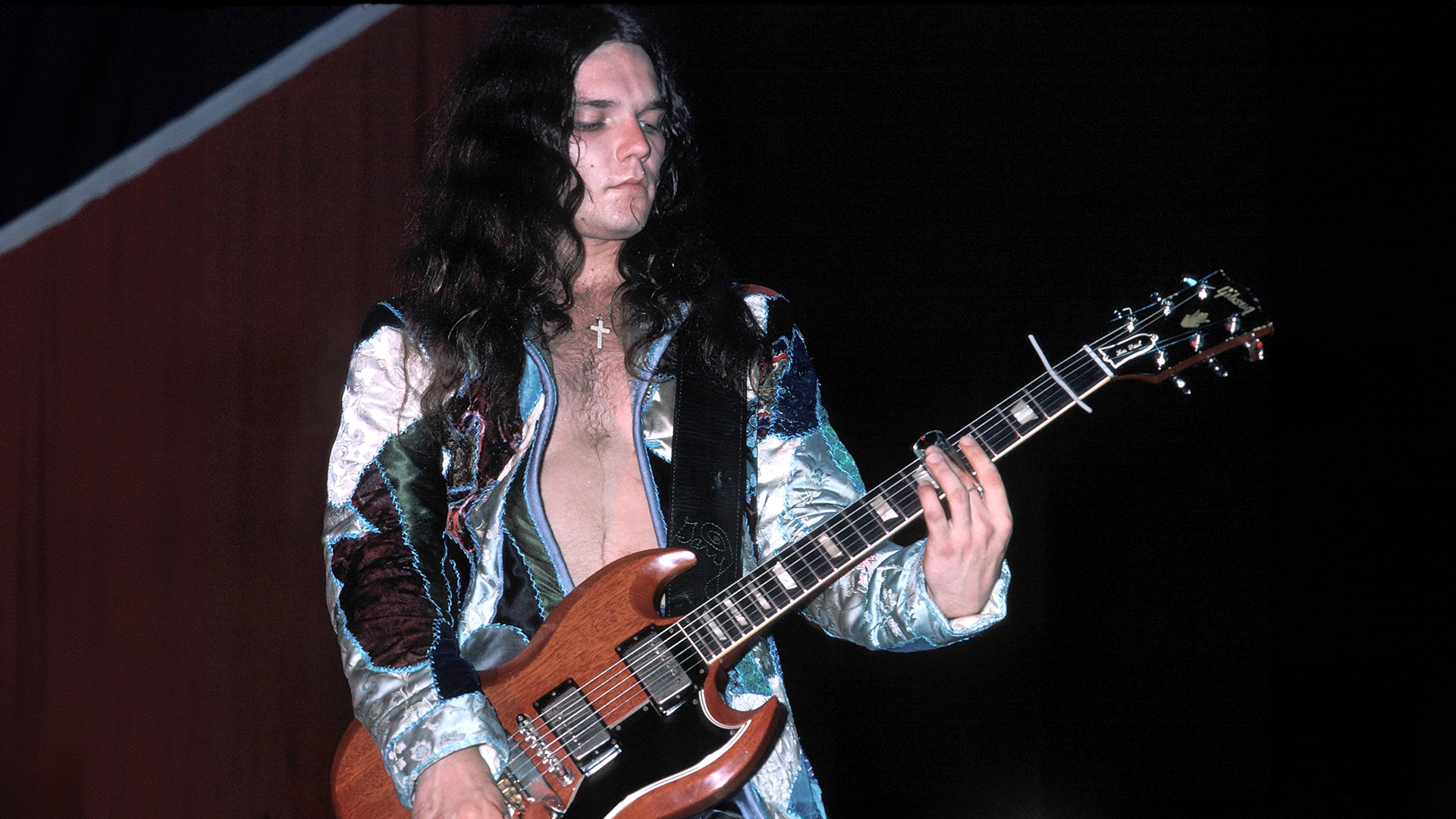
Good southern rock band that it is, Blackberry Smoke has played many a Lynyrd Skynyrd song during its 24 years, but not "Free Bird" — until this past November 7 in St. Augustine, Florida.
The reason was in frontman Charlie Starr's hands: Gary Rossington's 1961 Gibson Les Paul SG. That’s the electric guitar the late musician used to play "Free Bird" right up until Skynyrd's tragic plane crash in 1977, and then during his subsequent tenure with the Rossington Collins Band.
"We've played tons of Skynyrd songs but left 'Free Bird’ alone...'cause it feels kinda sacred," Starr explains. "That's Skynyrd's song, y'know? It doesn't feel right to tread upon it. You don't mess around with it. That's just my opinion, and it was our opinion as a band.
"But with that guitar, I thought, Well, we have to. One of my friends actually said, 'You can't get up there and play another song on that guitar and leave 'Free Bird' out of it.' And I said, 'You're right.'" Blackberry Smoke actually performed it as a medley, with the opening, slide-guitar dominated part of "Free Bird" leading into "Tuesday's Gone."
"Metaphorically it felt appropriate to me," Starr notes. "It felt kind of special to do."
And Rossington's family is planning to have more artists have that special kind of experience with his gear.
The distribution effort is being curated by the Chicago Music Exchange, which has partnered with Rossington's widow, Dale, and their daughters Mary and Annie to care for his instruments, amplifiers and other items — about 150 total according to CME CEO Andrew Yonke. Save for Berniece, Rossington's 1959 Gibson Les Paul he named for his mother — which is currently in the possession of the Rock and Roll Hall of Fame — CME is housing the Rossington collection in the Vault, a special display area for historic gear that’s attached to its retail showroom.
All the latest guitar news, interviews, lessons, reviews, deals and more, direct to your inbox!
Yonke says CME is "still actively working through his amp collection and bringing a lot of very old pre-plane crash stuff into working form." The company is also privately offering other artists the opportunity to use some of the gear as a continuing tribute to Rossington.
"From day one, the decision was always to further Gary's legacy and have more and more people get to see and play these," explains Yonke, who worked and became friends with Rossington over the years. "We're not selling anything. Everything we're doing is to provide access. Our goal is that hopefully people get to end up making records using the [Peavey] Mace amplifiers that were in the Hell House [Skynyrd’s rehearsal spot in Green Cove Springs, Florida] and get to play shows with the SGs and Les Pauls and things that Gary used."
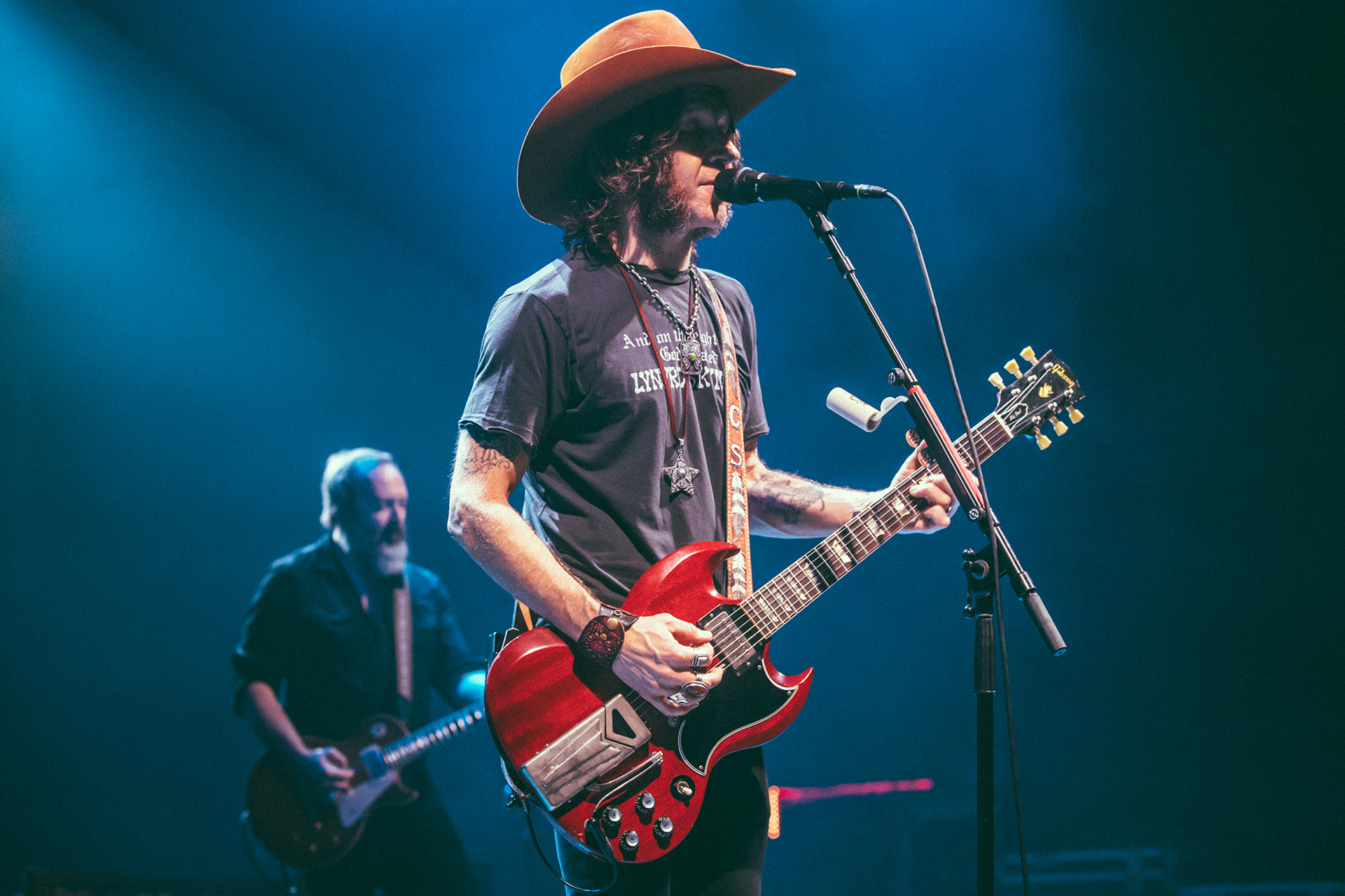
The Rossingtons and CME were connected not long after after Rossington's March 2023 death, at the age of 71, by current Skynyrd guitarist Rickey Medlocke, a longtime friend of Rossington's who also played with the band during the early ’70s. When Medlocke and the family met up at the CMT Music Awards in April 2023 for a tribute to Rossington, he recalls, "Dale and Mary told me they didn't know what they were going to do with all of Gary's stuff — didn't know what it was worth, didn't know when he bought it, didn't know what year it was... everything from A to Z, unknown.
"I said, 'Let me help you with this. I got the guy.' I put them in touch, and Andrew did just the most incredible job of putting the whole thing together, 'cause the collection was just massive."
"Dale and Mary told me they didn't know what they were going to do with all of Gary's stuff — didn't know what it was worth, didn't know when he bought it."
— Rickey Medlocke
"Thank God I had time to spend with Gary over the years and knew the type of person he was," Yonke adds. "My first meeting with Mary and Dale, it was like we'd known each other forever, which I was so happy about, because...it was the utmost importance that the family was comfortable and excited about everything we're doing. It's been a very slow and intentional process to get us to the point of more and more people knowing what we're doing."
Yonke was also pleased, albeit not surprised, to find Rossington's collection well intact. "He wasn't a flipper. He wasn't a trader. He wasn't a collector. He acquired things over the years from different promotions or gifts from friends, and obviously his relationship with Peavey, his relationship with Gibson.
"And he didn't lose things. So we have the Marshall from the original gigs, the custom Hi-Watt 100 from back in the day, the Mace stacks he toured with, the Mace combos that he wrote and recorded those songs with. It's all here."
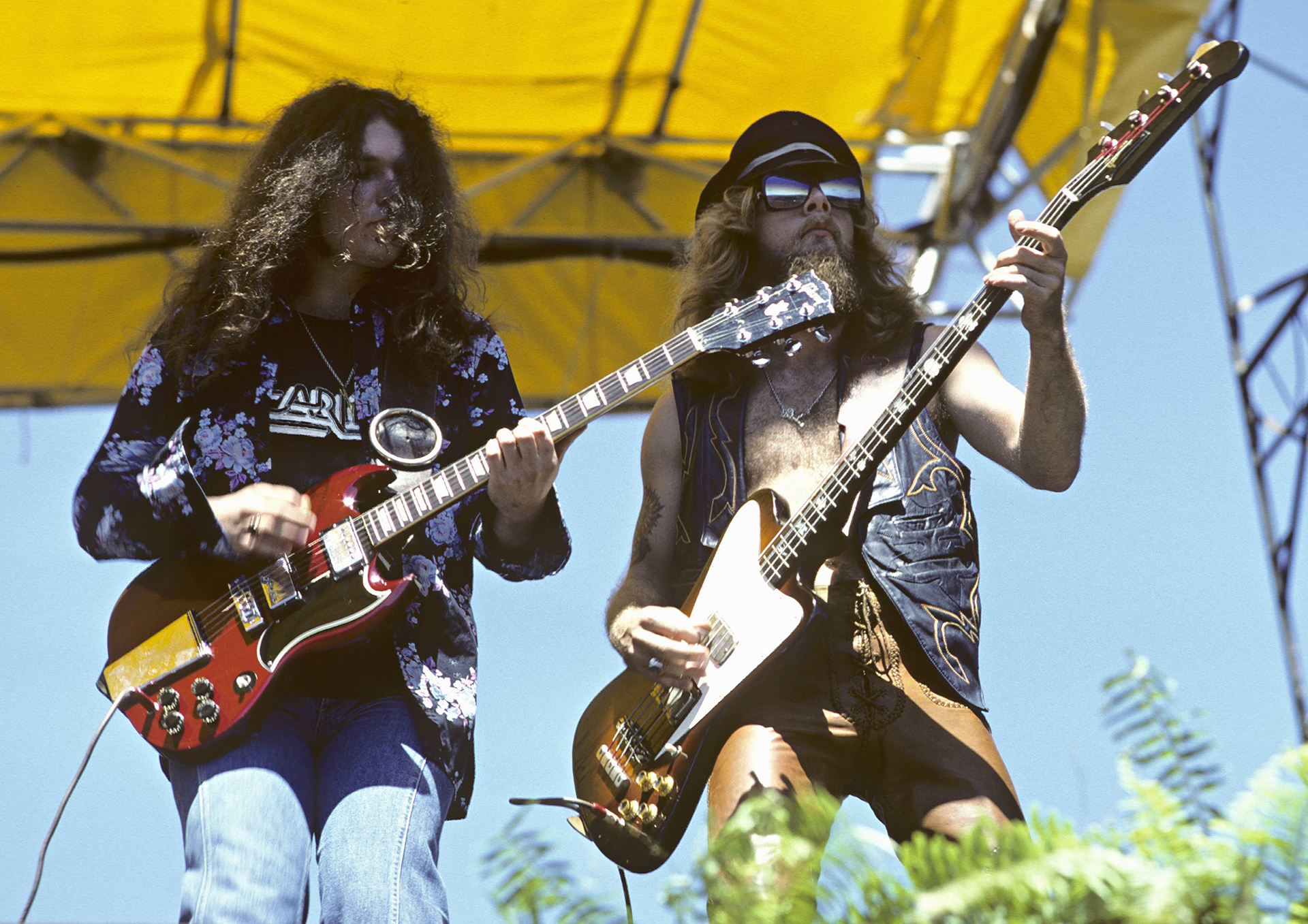
Besides the '61 SG that Starr played, CME also has a late-‘60s SG with a small-nut bridge that Rossington was playing during the ’70s, as well as a 1950s goldtop Les Paul that was traded between Rossington and the late Steve Gaines and had come back into the former's possession not long before the plane crash.
"The thing about Gary is these were the tools of the trade," Yonke says. "He was a songwriter and a player. When he went out on tour it was, 'Where's my SG?' and 'Where's my Les Paul?'"
Starr was "so blown and way and honored" by the playing opportunity. He was offered the '61 and the late-'60s SG, which were flown to St. Augustine in their own plane seat and accompanied by CME staffers. "I plugged the '61 in and it was just a magical feeling," Starr recalls. "It played and felt and sounded exactly like you want a guitar like that to feel. It felt so special."
Starr was also intrigued to find a small piece of large-gauge electrical wire with the guitar, which Rossington would place against the nut to raise the guitar's action for slide work. "That was his thing," Starr says. "He probably recorded 'Free Bird’ that way, and he would reach up and snatch it out of there to play the rhythm on the rest of the song. What a neat little trick. I thought, God, how long has that been in here? He hadn't had that guitar on the road in ages, probably since the ’90s. It was so cool to find it."
"I thought, God, how long has that been in here? He hadn't had that guitar on the road in ages, probably since the ’90s. It was so cool to find it."
— Charlie Starr
Yonke says CME and the Rossington estate are already offering the guitars to other players, including "some very big acts," although they're keeping mum about where they may land next. "It's not as simple as, 'Hey, bud, I got a guitar; would you like to play it?' There's a lot of moving parts involved," Yonke notes. "And there's such a rabid fan base for each and every one of these. I've had so many calls just on these Mace amplifiers. It's crazy how many artists want to know, 'Do you have the Maces?!'
"I'm a retailer. We're in the business of selling instruments, but we've built a reputation for making sure that we get things that are there to make music to other people who are making music. So knowing these instruments that created these sounds, that created an emotion; and being able to bring them out again and remind people about Gary, the type of person he was, the type of songwriter he was and what he participated in bringing out... It's impossible, really, to put that into words."
Gary Graff is an award-winning Detroit-based music journalist and author who writes for a variety of print, online and broadcast outlets. He has written and collaborated on books about Alice Cooper, Neil Young, Bob Seger, Bruce Springsteen and Rock 'n' Roll Myths. He's also the founding editor of the award-winning MusicHound Essential Album Guide series and of the new 501 Essential Albums series. Graff is also a co-founder and co-producer of the annual Detroit Music Awards.
